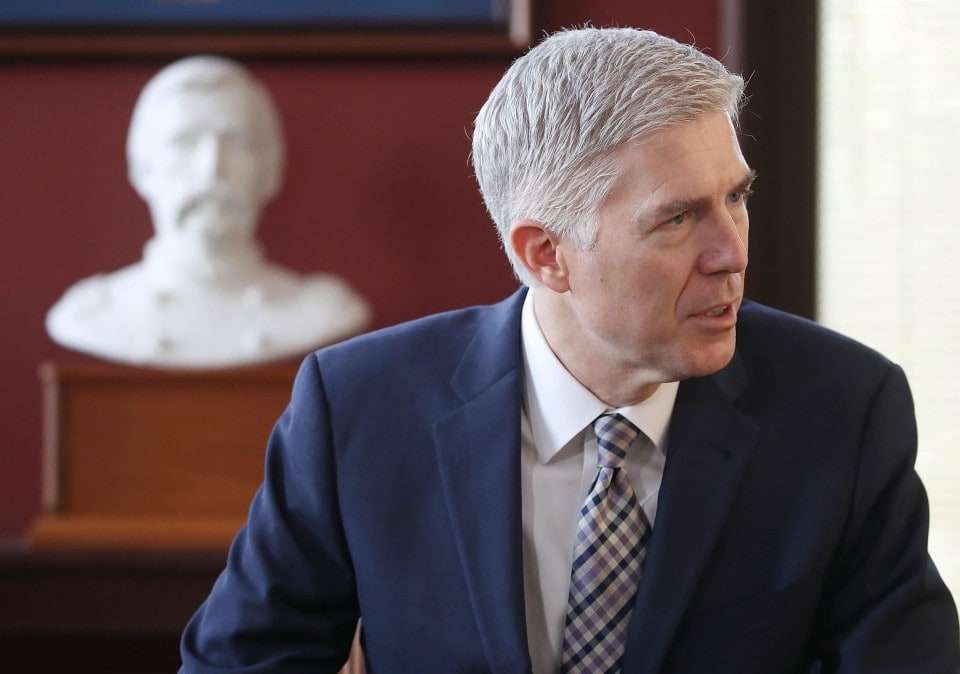The Volokh Conspiracy
Mostly law professors | Sometimes contrarian | Often libertarian | Always independent
Law professors in support of Judge Gorsuch (and my thoughts, too)

With Judge Neil Gorsuch's confirmation hearings approaching, a nice letter has circulated by "Law Professors in Support of Judge Gorsuch." The list of signatories is impressive and broad, ranging from Bruce Ackerman to Suzanna Sherry to Adrian Vermeule (as well as at least four of my co-bloggers here). Two of the substantive paragraphs read:
Although we may not agree with each decision or vote he will cast, we all agree that Judge Gorsuch is eminently qualified to serve on the Court and that his jurisprudence is within the mainstream of contemporary legal thought. Taken together, these traits should ensure his confirmation.
…
Judge Gorsuch is widely known for his fairness and integrity, his analytical rigor, and his persuasive writing. As scholars of the law, we can attest that the law is full of gaps and ambiguities that can bedevil the most careful thinkers. But Judge Gorsuch has handled this complexity with great skill, and his opinions stand out for their learned quality. In writing them, he routinely draws on law review articles and other scholarship, and he manifests a deep and nuanced understanding of the doctrines he applies. His wide-ranging intellect is equally on display in his extra-judicial publications and speeches, which include an academic book that grew out of his doctoral research and contributions to an important new treatise on the law of judicial precedent.
If anything, I think this letter understates academic support for Gorsuch, because of folks such as me who strongly support Gorsuch but did not sign the letter.
As I have already said in various venues, I am a big supporter of Gorsuch and think he will make an excellent Supreme Court justice, and I hope he is swiftly confirmed. Indeed, I quite agree with the letter's many compliments to Gorsuch, such as "his fairness and integrity, his analytical rigor, and his persuasive writing." I know that many people like to see judicial confirmations as basically a zero-sum game, with every gain for the right being a loss for the left and vice versa. But I hope that Gorsuch can come as close as possible to showing that that's not true.
So, with all of that said, I thought I should also add a few words about why, despite all of that, I did not sign the letter. My main point of disagreement was with the end of the letter, in which the signatories
note the costs of playing politics with judicial nominations. In his 2016 Year End Report, Chief Justice Roberts asked "why any lawyer would want a job that requires long hours, exacting skill, and intense devotion - while promising high stress, solitary confinement, and guaranteed criticism." The political gauntlet that judicial nominations have become - highlighted most recently by the Senate's outright refusal to consider the nomination of Judge Merrick Garland, also a brilliant judge eminently qualified for the Supreme Court - underscores this concern. Nominees expose themselves and their families to the withering glare of the modern media cycle and to political fortunes unconnected to their merit for the position. Senators of both parties employ arguments to delay and block nominees of the other party's President, only to denounce these tactics when political fortunes are reversed. Litigants who depend on the efficient functioning of the courts to see justice done ultimately pay the price.
While I acknowledge that this is a widespread view about the confirmation process, it is not my view. In my view, judicial nominees ought to be assessed on their judicial philosophies, and our Constitution gives the Senate just as much power and right to make those assessments as it gives the president. Like everybody else, I would love it if there were a bipartisan consensus in favor of my views on these things, but there is not.
So I support Gorsuch not simply because he is fair and smart and qualified and all of that, but also because I think he has a good philosophy of judging, one that will bring the judiciary closer to its true constitutional obligations. But people who do not share that view are perfectly reasonable in wanting somebody else.
For similar reasons, I do not share the view that the Senate acted wrongly in its failure to confirm Garland, but I can see why those who think Garland should have been confirmed would want to wreak revenge upon Gorsuch. I hope they do not, but my reasons are primarily about the merits, not the process.


Show Comments (0)